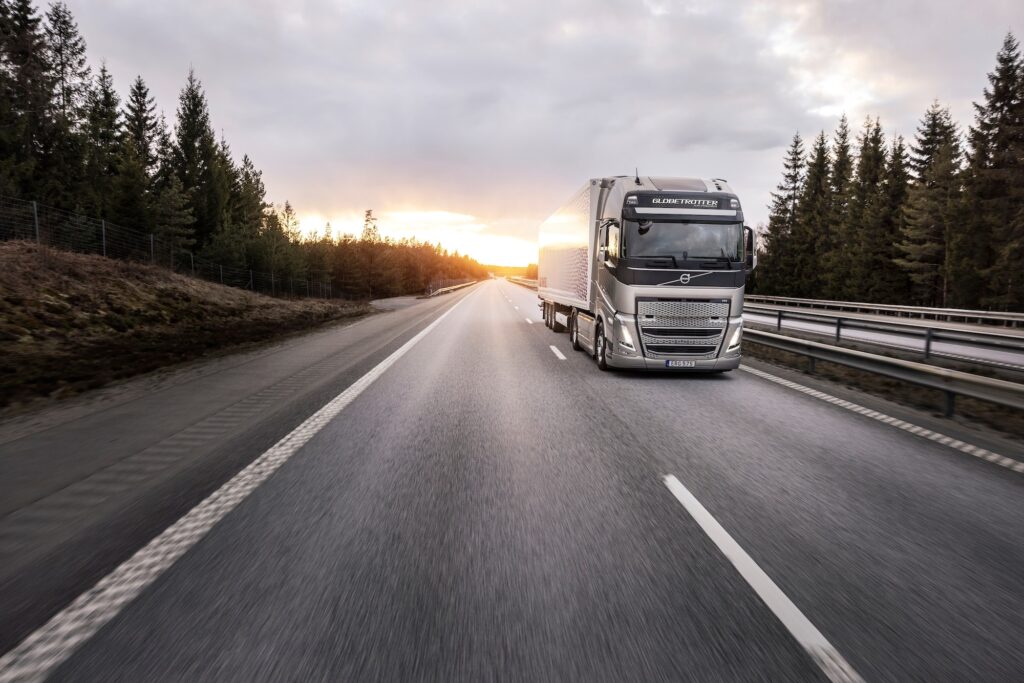Volvo Trucks Deploys FH LNG Trucks in Exclusive, One-Time Pilot with Linde Canada
Linde Canada aims to capture the performance, CO2 emission reductions, and other operational benefits of LNG-powered tractors in its long-haul operations
Volvo Trucks North America is working with Linde Canada Inc., a leading industrial gas and engineering company, in an exclusive, one-time pilot, importing five Volvo FH LNG (liquified natural gas) powered trucks to Canada. Volvo Trucks first launched the LNG product offering in 2017 with serial production beginning in 2018 for the European markets, with the trucks demonstrating exceptional torque, performance and durability while reducing CO2 emissions.
The Volvo FH gas-powered trucks, known for high reliability and customer approval, are designed for long haul transport with up to 60 tonnes GCW (132,277 lbs.) and up to 500 hp with up to 1,000 km range (621 miles). Combined with Westport’s high-pressure direct gas-injection system, these vehicles offer the same drivability, performance, and torque levels as diesel engines, but with drastically lower CO2 emissions.
“By embracing innovative technologies, Volvo Trucks continues to lead the shift in reducing CO2 emissions and bolstering environmental benefits through sustainable fuel options, including battery-electric, and fuel cell hydrogen,” said Paul Kudla, managing director for Canada, Volvo Trucks North America. “Volvo’s LNG fueling approach – widely adopted in Europe – has proven its effectiveness in reducing CO2 emissions, offering fleets both a sustainable and efficient solution. We are excited to enable Linde Canada to move forward with this one-time pilot project utilizing their extensive experience with LNG vehicles and existing fueling infrastructure.”
Linde Canada is dedicated to managing its carbon footprint and has set ambitious energy efficiency and greenhouse gas reduction targets. By integrating the Volvo FH LNG-powered trucks into its operations, Linde Canada aims to capture the performance, CO2 emission reductions, and other operational benefits of LNG-powered tractors in its long-haul operations.
Part of the planned evaluation at Linde Canada will mirror the fleet’s routine analysis of vehicle and driver fuel economy and take advantage of its sophisticated logistics and scheduling system that minimizes mileage by providing optimal routing. The deployment of five Volvo FH models fueled by LNG, featuring options of 420, 460, or 500 hp power ratings with up to 2,500 Nm of torque, will be on the road in Canada later this year. Linde Canda is building its own LNG supply and infrastructure for a seamless integration of the Volvo FH trucks into its fleet.
“Linde is committed to investing in our planet and is moving towards a lower carbon footprint with significant reductions by 2030 and net-zero by 2050,” said Laura Lunt, director, Energy Services, Linde Canada Inc. “Linde is working with Volvo Trucks and importing FH 460 hp Class 8 tractors to operate alongside our existing Volvo Trucks diesel Class 8 tractors on a Canadian trial. We believe LNG technology is one way we will achieve our goals for our transportation fleet.”
The use of LNG as a fuel offers several advantages, including a greater energy density compared to compressed natural gas (CNG) to deliver similar range to diesel and a 20% reduction in tank-to-wheel CO2 emissions compared to diesel. Additionally, LNG engines enhance the driver’s experience by delivering significant noise reduction, and smoother operating characteristics compared to a diesel equivalent.
“Volvo’s LNG fueling approach has been widely adopted in Europe and LNG is widely used in the global market as a whole so we have full confidence in the success of this pilot project,” said David Johnson, CEO, Westport. “Westport’s goal is to enable its OEM partners’ decarbonization plans with LNG and other internal combustion engine offerings that will continue to be viable solutions for the foreseeable future.”
“Volvo’s LNG fueling approach has been widely adopted in Europe and LNG is widely used in the global market as a whole so we have full confidence in the success of this pilot project,” said David Johnson, CEO, Westport. “Westport’s goal is to enable its OEM partners’ decarbonization plans with LNG and other internal combustion engine offerings that will continue to be viable solutions for the foreseeable future.”
Category: Cab, Trailer & Body, Electric Vehicles, Engines & Drivetrains, Equipment, Featured, Fuel & Oil, General Update, Green, News, Products, Tech Talk, Transit News, Vehicles











